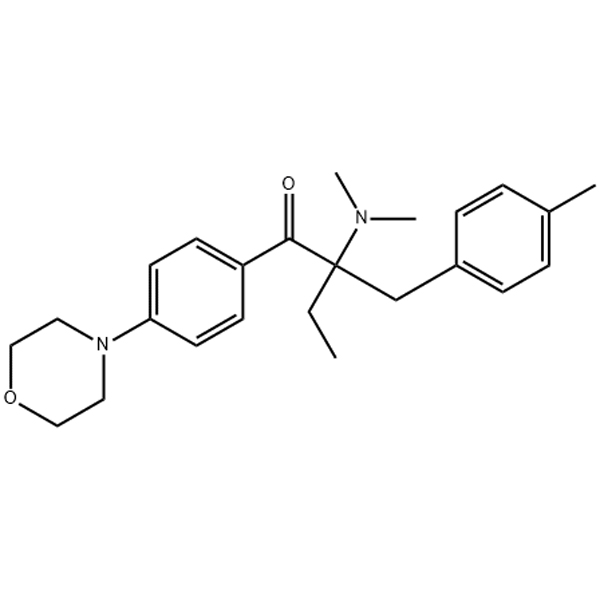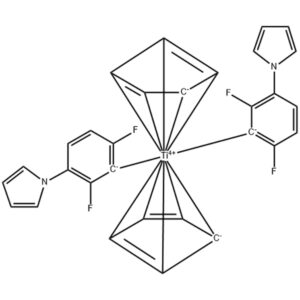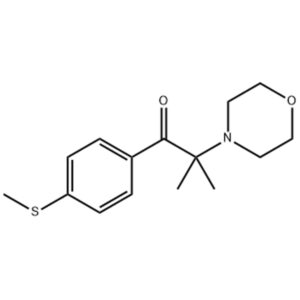描述
光引发剂 379 / irgacure 379 / Omnirad 379 CAS 119344-86-4
化学名称产品名称: 2-二甲基氨基-2-(4-甲基苄基)-1-(4-吗啉-4-基苯基)-丁-1-酮
同义词:379;光引发剂 379;Omnirad 379
化学文摘社编号: 119344-86-4
分子式 C24H32N2O2
一般信息:
379 属于α-氨基酮衍生物,具有热稳定性好、贮存期长、溶解性好、颜色浅、抗黄变性能好、光固化速度快、深层固化性能好等特点。
在光聚合成像系统中,它是一种对光直接敏感的物质,能促进单体聚合成高分子化合物。α-氨基酮衍生物是一类重要的光引发剂,379 就是其中之一。它已被广泛应用于紫外固化领域,并广泛用于光固化涂料、油墨、光刻胶蚀刻等领域。
规格:
| 外观 | 微黄色粉末 |
| 纯净 | ≥99% |
| 挥发物 | ≤0.3% |
| 熔点 | 82-87°C |
使用方法:
光引发剂 379 的高效率就像化学反应中的 "闪电攻击"。当暴露在紫外线下时,它可以快速、大量地产生自由基,这一过程就像一个高效的链式反应。从化学动力学的角度来看,这种高效产生自由基的能力可以使聚合反应快速、完全地进行,大大缩短固化时间,提高生产效率。这无疑是大规模生产中降低成本和提高产量的关键因素。
它的宽光谱响应就像一个视野开阔的 "探测器"。紫外线区域的宽吸收光谱意味着它可以与各种紫外线光源 "合作"。无论是传统的汞灯紫外光源还是新型的 LED 紫外光源,光引发剂 379 都能适应。这为生产过程中设备的选择提供了极大的灵活性。企业可以根据自身需求和成本考虑选择最合适的紫外线光源,而不必担心光引发剂的兼容性问题。
良好的热稳定性是光引发剂 379 的另一个优点。在高温加工环境中,它就像一个坚强的战士,不会因为高温而失去活性。在一些需要高温处理的工艺中,如在某些特殊金属表面进行 UV 涂层后高温烘烤以增强附着力,光引发剂 379 仍能稳定发挥作用,确保涂层的固化质量。
低迁移特性可作为稳定的 "锚",确保固化产品的长期耐久性。在许多有严格质量要求的产品中,如食品包装材料的紫外线涂料,如果光引发剂迁移到食品中,可能会带来安全风险。然而,光引发剂 379 的低迁移特性消除了这一顾虑,使固化产品长期稳定安全。
此外,光引发剂 379 气味小,在对环境和人体健康要求较高的应用场合也能脱颖而出。在内墙涂料领域,人们对气味非常敏感。例如,在医院、学校、家庭和其他场所,使用含有光引发剂 379 的低气味配方不仅可以快速翻新和维护,还能提供舒适健康的环境。一项关于室内空气质量的研究表明,使用低气味涂料的室内空间的挥发性有机化合物(VOC)含量明显低于使用传统涂料的空间,这进一步证明了光引发剂 379 在改善室内环境方面的重要作用。
与 369 相比,379 的与众不同之处在于它的溶解度大大提高,可以用于 369 溶解度受限或因溶解度受限而无法使用的应用领域。
建议用量
- 胶印油墨:2 - 4 % 369
- 丝网油墨 2 - 4 % 369 + 1 - 3 % 184
- 颜料涂料: 1 - 4 % 369
- 用于成像应用的光聚合物: 0.5 - 5 % 369
包装:
每箱 20 千克。
存储:
存放在干燥、清洁、通风良好的仓库中。
避免光照和加热。
保护产品在运输过程中不受泄漏、雨淋和日晒的影响。
立即联系我们!
如果您需要价格,请在下表中填写您的联系信息,我们通常会在 24 小时内与您联系。您也可以给我发电子邮件 info@longchangchemical.com 请在工作时间(UTC+8 周一至周六,上午 8:30 至下午 6:00)或使用网站即时聊天工具获得及时回复。
| 光引发剂 TPO | 化学文摘社编号 75980-60-8 |
| 光引发剂 TMO | cas 270586-78-2 |
| 光引发剂 PD-01 | 化学文摘社编号 579-07-7 |
| 光引发剂 PBZ | 化学文摘社编号 2128-93-0 |
| 光引发剂 OXE-02 | cas 478556-66-0 |
| 光引发剂 OMBB | 化学文摘社 606-28-0 |
| 光引发剂 MPBZ (6012) | CAS 86428-83-3 |
| 光引发剂 MBP | 化学文摘社编号 134-84-9 |
| 光引发剂 MBF | 化学文摘社编号 15206-55-0 |
| 光引发剂 LAP | 化学文摘社编号 85073-19-4 |
| 光引发剂 ITX | CAS 5495-84-1 |
| 光引发剂 EMK | 化学文摘社编号 90-93-7 |
| 光引发剂 EHA | 化学文摘社编号 21245-02-3 |
| 光引发剂 EDB | CAS 10287-53-3 |
| 光引发剂 DETX | 化学文摘社编号 82799-44-8 |
| 光引发剂 CQ / 樟脑醌 | 化学文摘社编号 10373-78-1 |
| 光引发剂 CBP | 化学文摘社编号 134-85-0 |
| 光引发剂 BP / 二苯甲酮 | 化学文摘社编号 119-61-9 |
| 光引发剂 BMS | 化学文摘社 83846-85-9 |
| 光引发剂 938 | 化学文摘社编号 61358-25-6 |
| 光引发剂 937 | CAS 71786-70-4 |
| 光引发剂 819 DW | cas 162881-26-7 |
| 光引发剂 819 | cas 162881-26-7 |
| 光引发剂 784 | cas 125051-32-3 |
| 光引发剂 754 | CAS 211510-16-6 442536-99-4 |
| 光引发剂 6993 | 化学文摘社编号 71449-78-0 |
| 光引发剂 6976 | cas 71449-78-0 89452-37-9 108-32-7 |
| 光引发剂 379 | cas 119344-86-4 |
| 光引发剂 369 | cas 119313-12-1 |
| 光引发剂 160 | 化学文摘社编号 71868-15-0 |
| 光引发剂 1206 | |
| 光引发剂 1173 | 化学文摘社编号 7473-98-5 |






评价
目前还没有评价